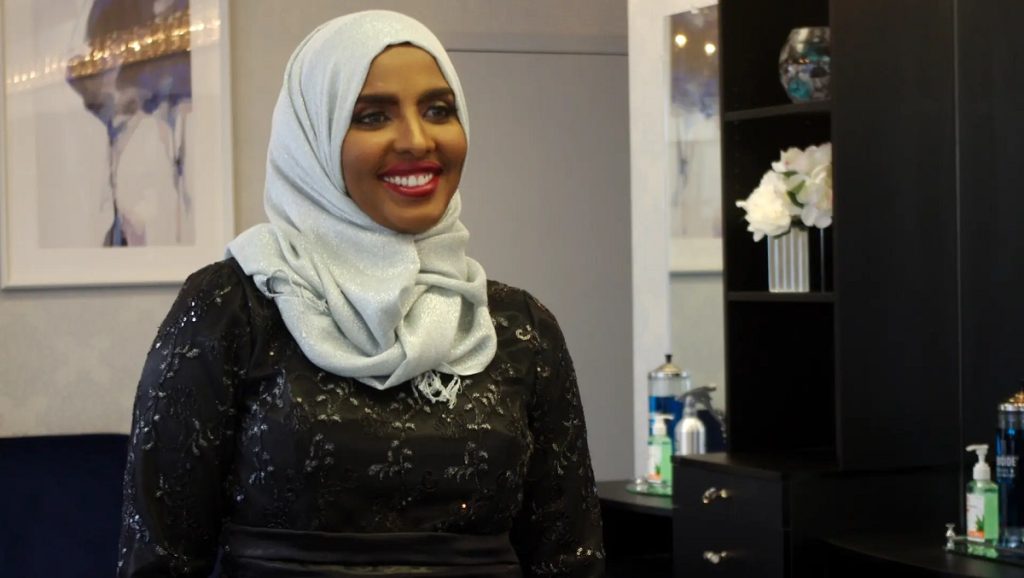In most people’s lives, a visit to the beauty salon is routine—a simple haircut or a few hours of pampering. But for Muslim women in Massachusetts who wear the hijab, finding a space that respects their religious privacy can be an ongoing challenge. At a traditional salon, the presence of male employees or clients can make it impossible for women who cover their hair to feel comfortable or respected.
That’s now changing. This week, Massachusetts celebrated the grand opening of its first salon and spa designed exclusively for Muslim women—a dream that Somali-born entrepreneur Shamso Ahmed has nurtured since childhood.
From Refugee to Entrepreneur: A Journey of Faith and Determination
Ahmed’s story begins in Somalia, where at just ten years old she and her family fled the civil war and resettled in Boston. Two years later, she began wearing the hijab—a decision that inspired a lifelong dream: to create a salon where Muslim women could uncover their hair freely and feel completely safe.
“I envisioned this huge salon that had all the services you could think of,” Ahmed recalled. “A place where women felt safe.”
After earning a degree in accounting and training in cosmetology, Ahmed finally turned her vision into reality. Located at the Roxbury–South End line, her new business, Shamso Hair Studio and Spa, is more than just a beauty parlor—it’s a statement of empowerment, faith, and inclusion.
Designed for Privacy, Comfort, and Culture
Step inside, and the difference is immediately clear. The windows are frosted for privacy, entry requires a security code, and the entire space is women-only. Chandeliers hang above elegant décor in silver and black, but what truly sets this salon apart is who is allowed inside—and who isn’t.
The salon offers a wide range of services, from hair styling and facials to henna art and a traditional hammam steam spa. Every corner reflects Ahmed’s commitment to creating a sanctuary where women can relax without fear of exposure or judgment.
“For years, Muslim women in Boston struggled to find a safe salon,” Ahmed explained. “Some would ask stylists to come to their homes, others would wait until salons closed, or they’d rely on family members. That’s not real accessibility.”
Now, that struggle is over.
Community Celebration and Regional Impact
The response has been overwhelming. Hundreds of women attended the grand opening, traveling from across New England—and even from as far as Ohio, Maryland, and Virginia.
Among the attendees was Koldia Shah, a Boston mother visiting on behalf of her young daughters. “When they start covering their hair, this will be really nice,” she said. “They won’t have to go all over Boston just to feel beautiful.”
For some women, visiting a salon like this may take adjustment. “It’s strange for me to think about taking my hijab off in public, even with other women,” Shah admitted. Ahmed reassured her that individual privacy options could be arranged, emphasizing the salon’s flexibility and inclusivity.
Younger women, however, showed pure excitement. “It’s been so hard to find a place like this,” said Farhia Ali, a member of Boston’s Somali Muslim community. “We finally have somewhere to relax, get pampered, and be understood.”
Carrying a Legacy Forward
For Ahmed, opening Shamso Hair Studio and Spa isn’t just the realization of a childhood dream—it’s also an act of honoring her heritage. Her mother once owned a small business in Somalia before war forced the family to flee.
And Ahmed draws deep inspiration from Islamic history: “The Prophet Muhammad’s wife, Khadijah (peace be upon them), was a powerful businesswoman who encouraged others to follow in her footsteps,” she said. “I want to do the same for women here.”
As Massachusetts’ first Muslim women-only salon, Shamso Hair Studio and Spa represents more than beauty—it symbolizes empowerment, faith, and community. For Muslim women across the state and beyond, it’s a safe space where faith and self-care finally meet.

